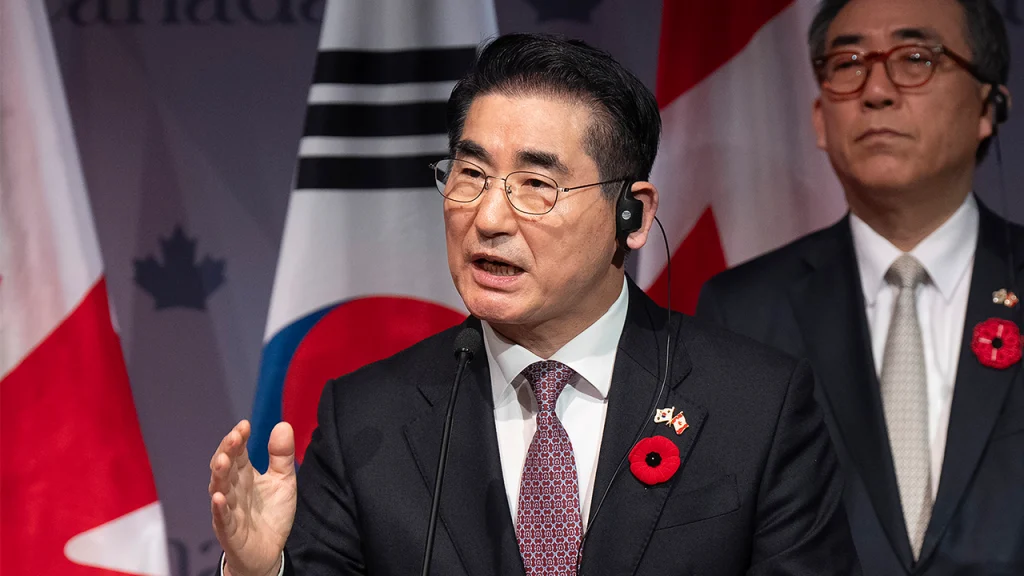The political landscape of South Korea has been thrown into turmoil following President Yoon Suk Yeol’s declaration of martial law and the subsequent attempted suicide of former Defense Minister Kim Yong Hyun. This dramatic series of events has sparked investigations, impeachment attempts, and widespread public concern about the stability of the government.
The controversy began with President Yoon’s decision to impose martial law, a move he justified as necessary to quell what he termed “shameless North Korea followers and anti-state forces,” a thinly veiled criticism of his political opponents in the liberal opposition. This declaration, the first of its kind in South Korea in over four decades, immediately drew sharp criticism and accusations of unconstitutionality from opposition parties and legal experts. The decree, aimed at preventing lawmakers from voting on a motion, was ultimately short-lived, being lifted just hours later after lawmakers successfully entered parliament and unanimously rejected it. The president subsequently apologized for the declaration, stating he would not evade responsibility for his actions, while also indicating his willingness to let his party navigate the ensuing political uncertainty, including potential implications for his presidency.
The situation escalated further with the arrest of Kim Yong Hyun, a close associate of President Yoon, on allegations of playing a central role in the martial law declaration and abuse of power. Kim, accused of recommending martial law to the president and orchestrating the deployment of troops to the National Assembly to obstruct lawmakers, was the first individual formally arrested in connection with the decree. While in detention, Kim attempted suicide overnight, but was stopped by officials and remains in stable condition. The attempted suicide has added another layer of complexity and concern to the unfolding political crisis.
Parallel to Kim’s arrest, police raided President Yoon’s office as part of the investigation into the martial law declaration. Senior law enforcement officials, including the commissioner general of the National Police Agency and the head of the Seoul metropolitan police agency, were also detained for their alleged involvement in deploying police forces to obstruct lawmakers from voting. The core of the investigation revolves around whether Yoon, Kim, and others involved in the martial law decree committed the crime of rebellion, a charge carrying a potential death penalty.
The opposition Democratic Party, capitalizing on the political instability, is pursuing a second impeachment vote against President Yoon, slated for Saturday. This follows a failed impeachment attempt the previous weekend. If impeached, Yoon’s powers will be suspended pending a decision by the Constitutional Court on his removal. In the interim, Prime Minister Han Duck-soo would assume presidential responsibilities. Should the court ultimately remove Yoon from office, a snap election must be held within 60 days.
Adding further fuel to the fire, a parliamentary hearing revealed disturbing allegations about the extent to which President Yoon was willing to go to enforce martial law. Kwak Jong-keun, commander of the Army Special Warfare Command, whose troops were dispatched to parliament, testified that Yoon personally ordered him to “quickly destroy the door and drag out the lawmakers.” Kwak stated that he refused to comply with the order. Another officer from the military’s counterintelligence agency testified that his commander, a close associate of Kim Yong Hyun, inquired about the availability of space in an army bunker to detain politicians and other figures following the martial law declaration. These revelations have further intensified public scrutiny of the president’s actions and judgment.
The attempted suicide of former Defense Minister Kim Yong Hyun is a stark manifestation of the immense pressure and scrutiny under which individuals involved in this political crisis are operating. The unfolding events in South Korea underscore the fragility of democratic institutions and the potential repercussions of executive overreach. The upcoming impeachment vote holds significant weight, as it will determine the immediate future of President Yoon’s presidency and the direction of the country amidst this period of political uncertainty. The world watches with bated breath as South Korea navigates this tumultuous chapter in its political history.


